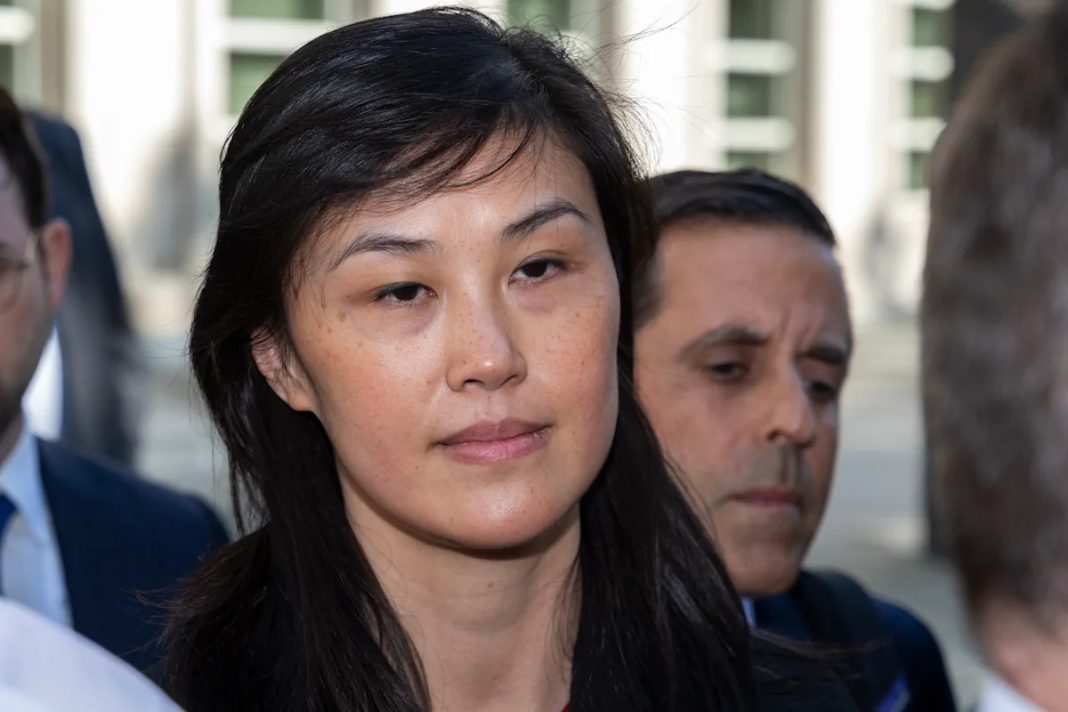The former aide to two New York governors charged with acting as an unregistered Chinese agent heads to federal court in Brooklyn Wednesday for the first big FARA trial of the second Trump administration.
Linda Sun, who served as a deputy chief of staff to current Gov. Kathy Hochul and worked in Andrew Cuomo’s administration before that, was indicted last year for allegedly using her job to benefit the Chinese government in exchange for millions in payments to her husband’s business.
In a sense, it’s notable that Sun’s prosecution has continued at all. Special counsel Robert Mueller brought foreign agent cases against numerous top allies of Donald Trump during his first term, many of whom he subsequently pardoned. And at the beginning of this year, Trump’s DOJ signaled that it would deprioritize foreign influence campaigns, outlining a pivot in a February memo and dropping foreign agent or corruption charges against politicians including Rep. Henry Cuellar (D-Texas) and New York City Mayor Eric Adams.
At the same time, the department has secured a guilty plea from a former CIA agent for FARA violations. And it has stuck with other Biden-era foreign agent cases involving former Rep. David Rivera (R-Fla.) and Korea policy expert Sue Mi Terry, at least for now. Then in September, Trump issued a memo explicitly directing the use of FARA to prosecute nonprofits and NGOs with foreign ties.
Though it began in the Biden administration, Sun’s case “maps pretty well onto where Bondi said they would continue to focus criminal enforcement,” said Josh Rosenstein, a partner at Sandler Reiff Lamb Rosenstein & Birkenstock, who advises clients on FARA compliance.
Sun and her husband Chris Hu have pleaded not guilty to a slew of charges, which in addition to the FARA charges against Sun, also include money laundering, tax evasion, visa fraud and more.
Prosecutors say that Sun’s actions at the behest of the Chinese government include blocking meeting requests from Taiwanese officials to the governor’s office — while organizing meetings for Chinese officials; changing state messaging on issues of importance to China and obtaining state proclamations for representatives of Beijing without authorization.
In exchange, prosecutors say Chinese officials steered “millions of dollars” toward Hu’s businesses — which helped finance the purchase of a $3.6 million home on Long Island and a $1.9 million high-rise condo in Honolulu and luxury cars including a Ferrari and a Range Rover. They also allege the couple received other perks such as jobs for relatives to Nanjing-style salted ducks prepared by the Chinese consulate’s personal chef.
Attorneys for Sun have cast doubt on the government’s accusations that Sun undertook the activities in question at the direction of Chinese officials rather than in furtherance of her personal beliefs, or were outside the normal course of her official duties.
Among the government’s biggest hurdles in the case will be proving that Sun willfully neglected to register as a foreign agent, as well as its assertions that Sun was acting at Beijing’s direction, argued Tom Spulak, a partner at King & Spalding who advises clients on FARA compliance.
“If you read the indictment carefully, there’s only a few references there to any type of request, or a suggestion of assistance from the [Chinese government],” he said. “Everything seems to be her reporting to them.”
Matt Sanderson of Caplin & Drysdale told POLITICO that while the defense is likely to “focus more on the mundane nature of the actions” that Sun took, “I think the fundamental question they have to answer is, why should there not be some implication read out from both the receipt of all of these benefits and the actions that were taken by her in her official capacity? Why aren’t those connected?”
FARA experts pointed to one other element of Sun’s case that bodes well for the government. “What’s present in this case that has not been present in a lot of the [foreign agent] cases that the department lost is … the very sexy fact pattern involving flashy items of value and expensive toys and all of the hallmarks that you would traditionally expect to see in a foreign influence operation,” said Rosenstein.
He, like others, drew parallels to the successful case against former Sen. Bob Menendez (D-N.J.). “It helps ground the allegations in sort of a very concrete and understandable way for a jury,” Rosenstein argued, while Sanderson noted that the fact pattern can help illustrate that “it wasn’t just a failure to file some forms.”

